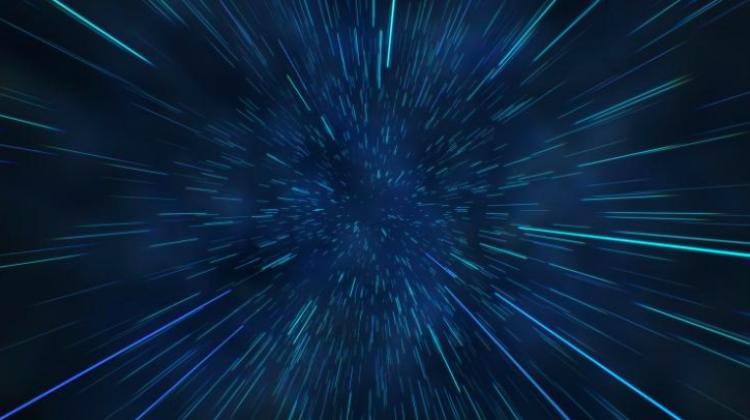#Askscientist: Is it possible to produce a particle faster than light?
 Photo: Fotolia
Photo: Fotolia
Particles faster than light can not be produced. Law of physics prohibit it, says physicist Prof. Grzegorz Wrochna. But the scientist hints sci-fi fans how to defend the concept of fast travel over cosmic distances - at least in theory.
During the Science Picnic, our visitors could pass their questions to scientists. Now we ask researchers some of these questions. With the question "Is it possible to produce a particle faster than light?" we turned to elementary particle physicist Prof. Grzegorz Wrochna from the National Centre for Nuclear Research in Świerk.
"Is it possible to produce a particle faster than light? The answer is simple: it`s not. According to Einstein`s principle, we can not accelerate anything to a speed greater than the speed of light. Such a particle would reach infinite energy. The laws of physics prohibit that" - he replies.
Asked if there are any loopholes in the laws of nature, through which a particle faster than the light could squeeze, he assures: "There are none. This is the basic law of nature. We are quite certain that there are no loopholes in it. If it were questioned, the whole the physics building would collapse".
The scientist admits that there is the concept of tachyons, hypothetical particles faster than light. "But not only this concept has not found experimental confirmation, it is still not known how it could be confirmed experimentally" - he comments.
Asked whether such a hypothetical particle faster than light would go back in time, Prof. Wrochna says: "As we accelerate a particle, time slows down for it. For the photon that moves at the speed of light, time stands still. If we were to accelerate it even more, time would have to start flowing backwards" - he says.
The physicist from the National Centre for Nuclear Research proposes a thought experiment. Even if it turns out that the speed of light is not the highest possible speed, there must be another maximum velocity in the universe that can not be exceeded. "Lack of maximum speed would mean that there is an infinitely great velocity, and then we would not know what is the cause and what is the effect in the Universe. The flow of information between events could occur without delay, so it would be impossible to distinguish between cause and effect. And then, without a maximum speed, we would have a problem with the statement that there are any laws of physics" - says the scientist.
The physicist explains what he thinks when he hears the famous phrase in sci-fi movies: "We are going to FTL".
"FTL is nonsense, but the idea of travelling fast over cosmic distances can be defended" - he points out. According to Wrochna, one can imagine that we can bend space-time so that we do not travel certain distance at a speed faster than light, but we simply have a shorter distance to travel.
"Imagine that you have to walk around an area and it will take you half an hour. You can go across and that will take you only 10 minutes. But that does not mean that you walk three times faster" - he compares.
"Maybe someday it will turn out that we can bend space-time so that we can take a shortcut from one galaxy to another. But even then we will not travel faster than light" - he says.
He adds that such guessing is possible until we develop a quantum theory of gravity. This theory would combine quantum mechanics and general relativity. If a quantum theory of gravity prohibits such bending of space-time - we will have to come up with a different idea for space travel that would be consistent with this new theory.
PAP - Science in Poland, Ludwika Tomala
lt/ ekr/ kap/
tr. RL
Przed dodaniem komentarza prosimy o zapoznanie z Regulaminem forum serwisu Nauka w Polsce.















